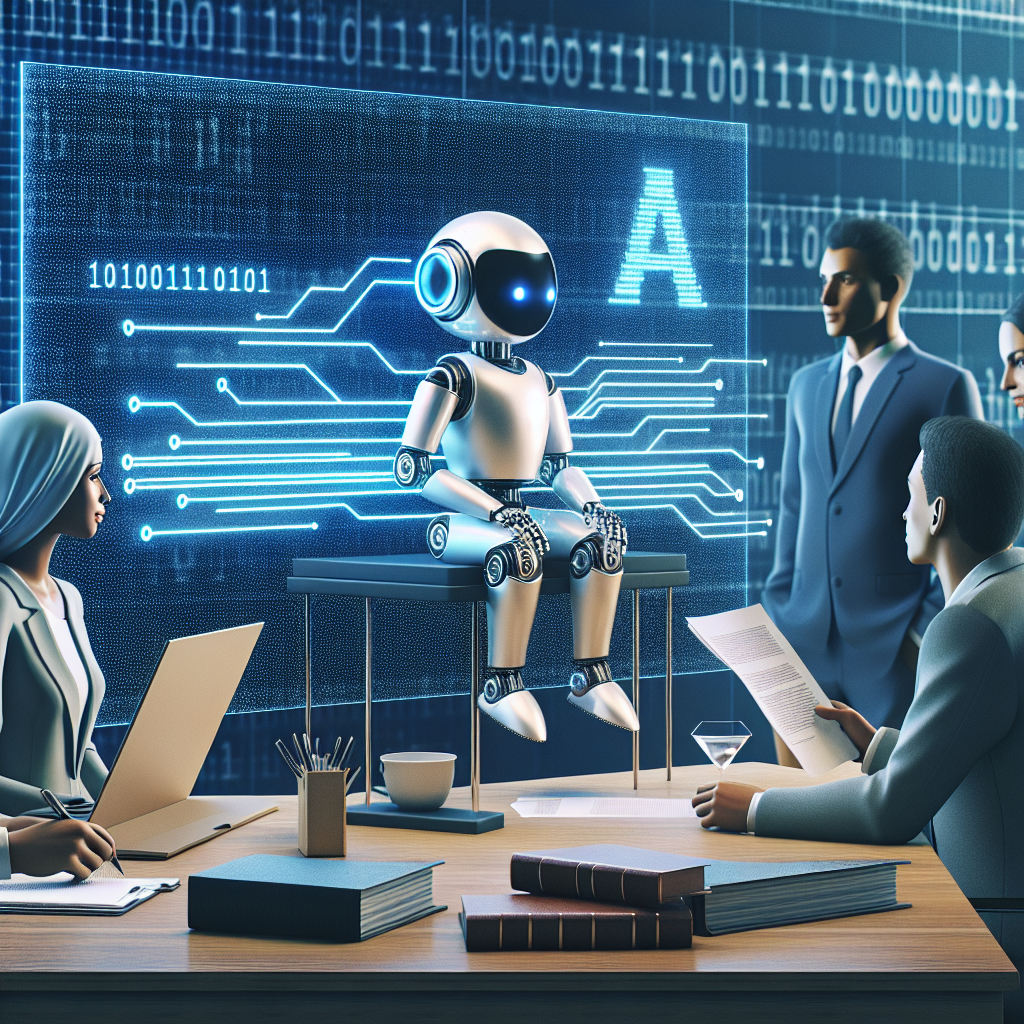The Future of AI Software in Personalized Legal Services
In recent years, artificial intelligence (AI) has been making significant advancements in various industries, including the legal sector. AI software is now being used to streamline legal processes, improve efficiency, and provide personalized legal services to clients. In this article, we will explore the future of AI software in personalized legal services and how it is revolutionizing the way legal services are delivered.
AI software has the capability to analyze vast amounts of data and extract valuable insights quickly and accurately. This makes it an invaluable tool for lawyers and legal professionals who need to sift through mountains of information to find relevant facts and evidence for their cases. AI software can also be used to perform legal research, draft legal documents, and even predict the outcome of legal proceedings based on historical data.
One of the key benefits of AI software in personalized legal services is its ability to provide tailored legal advice to clients based on their specific needs and circumstances. By analyzing a client’s legal documents, contracts, and other relevant information, AI software can recommend the best course of action for a particular legal issue. This personalized approach can help clients make more informed decisions and achieve better outcomes in their legal matters.
AI software can also be used to automate routine legal tasks, such as document review, contract analysis, and case management. This frees up lawyers and legal professionals to focus on more complex and strategic aspects of their work, such as negotiating settlements, arguing cases in court, and advising clients on legal matters. By automating these repetitive tasks, AI software can help law firms improve their efficiency, reduce costs, and deliver better results to their clients.
Another exciting development in the field of AI software is the use of natural language processing (NLP) technology to improve communication between lawyers and clients. NLP technology allows AI software to understand and respond to human language in a more natural and intuitive way. This can help lawyers and legal professionals communicate with clients more effectively, answer their questions more quickly, and provide them with the information they need to make informed decisions about their legal matters.
In the future, AI software in personalized legal services is expected to become even more sophisticated and advanced. We can expect to see AI software being used to predict legal trends, analyze case law, and even simulate the behavior of judges and juries in court. This level of predictive analytics can help lawyers and legal professionals anticipate legal outcomes, develop winning strategies, and provide their clients with a competitive edge in their legal matters.
Overall, the future of AI software in personalized legal services looks bright and promising. By harnessing the power of AI technology, law firms can deliver more personalized, efficient, and cost-effective legal services to their clients. This can help improve access to justice, enhance the quality of legal representation, and transform the way legal services are delivered in the digital age.
FAQs:
1. How can AI software help improve personalized legal services?
AI software can help improve personalized legal services by analyzing vast amounts of data, providing tailored legal advice to clients, automating routine legal tasks, and improving communication between lawyers and clients.
2. What are some of the key benefits of using AI software in personalized legal services?
Some of the key benefits of using AI software in personalized legal services include improved efficiency, reduced costs, better outcomes for clients, and enhanced communication between lawyers and clients.
3. How can AI software be used to predict legal outcomes?
AI software can be used to predict legal outcomes by analyzing historical data, case law, and other relevant information to identify patterns, trends, and probabilities that can help lawyers and legal professionals anticipate legal outcomes and develop winning strategies.
4. What are some of the future developments in AI software for personalized legal services?
Some of the future developments in AI software for personalized legal services include the use of natural language processing technology, predictive analytics, and simulation tools to enhance communication, automate tasks, and predict legal trends and outcomes.
5. How can law firms benefit from using AI software in personalized legal services?
Law firms can benefit from using AI software in personalized legal services by improving efficiency, reducing costs, delivering better results to clients, and gaining a competitive edge in the legal marketplace. By harnessing the power of AI technology, law firms can transform the way legal services are delivered and enhance access to justice for all.
In conclusion, the future of AI software in personalized legal services looks promising and exciting. By leveraging the power of AI technology, law firms can improve efficiency, deliver better results to clients, and transform the way legal services are delivered in the digital age. As AI software continues to evolve and advance, we can expect to see even more innovative applications of this technology in the legal sector, leading to greater access to justice, enhanced quality of legal representation, and improved outcomes for all.

